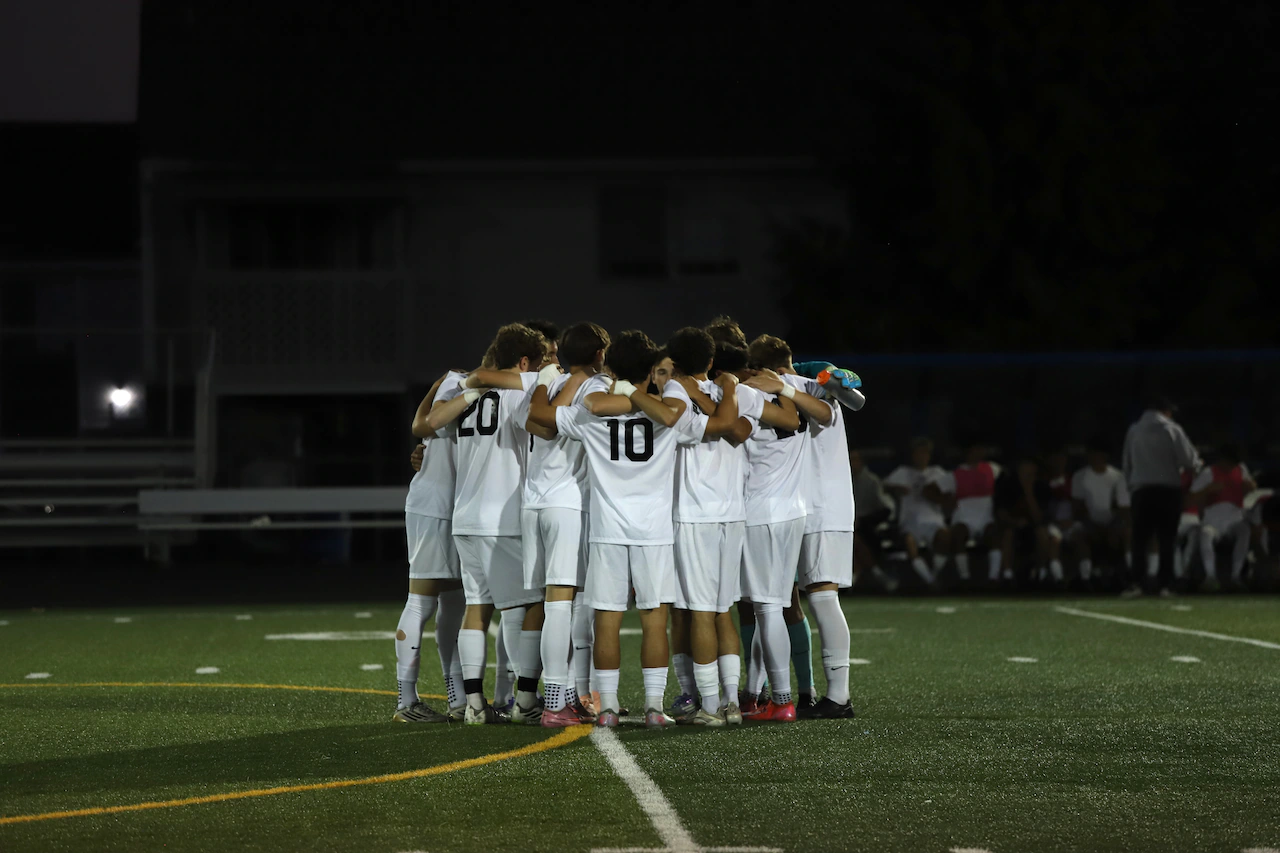Wesley Girls’ High School: Honouring Wrigley, reflecting on standards, and reclaiming excellence
By Opinion Honouring Wrigley, Reflecting On Standards, And Reclaiming Excellence Vickie Sekyere-Abankwa,Prince Adu-Owusu
Copyright myjoyonline

It is that time of year again. Parents, Old Girls, teachers, mentors, pastors — everyone wants their daughters, nieces, granddaughters, wards, or mentees to attend Wesley Girls’ High School, Cape Coast. And why not? After all, it is a legacy institution with a longstanding reputation for academic and general excellence; a national treasure. It is also Wrigley Day — that sacred moment on our calendar where we honour the vision and tenacity of Mrs. Harriet Wrigley, our founder, and remember the bedrock principles that define Wesley Girls’ High School (WGHS).
This year, we mark 189 years of educating and empowering girls; thus far have we come by grace. And yet, alongside our Wrigley Week celebrations, questions linger… especially as Old Girls, as parents, as stakeholders: Are we still honouring the standards we were called to uphold? Or have we become too eager to just ‘fit in’?
Have we given up on the pursuit of excellence, perhaps not so much out of expedience but self- preservation, in a culture where mediocrity has been normalised, standing on principles gets you alienated, and integrity seems more of a Sunday affair?
Have we been standard-bearers in the true sense of the word?
Ten years ago, on the occasion of the School’s 180th Anniversary Speech and Prize-giving Day which was proudly hosted by the WGHS Class of 1996 to commemorate our 20th anniversary since leaving school, we penned a bold and heartfelt article on the Speech Day theme:
In it, we urged everyone — the School, the Methodist Church of Ghana, Government of Ghana, parents, Old Girls, and vendors — to remember who we are, what we stand for, and the standards that built this legacy. That article, reproduced in full below in its original form, still rings true today, as do many of the concerns raised.
“Comment on Speech Day Theme: Redefining Our Collaboration with Our Stakeholders After 180 Years – The Way Forward”
Wesley Girls’ High School (WGHS) has been educating and empowering girls for the past 180 years in Ghana; from accountants, architects and astrophysicists to bakers, bankers, biochemists, carpenters, clergy, chefs, confectioners, draughtsmen, doctors, dentists, economists, educationists, engineers, entrepreneurs, event planners, fashion designers, financiers, farmers, gardeners, geologists, graphic designers, homemakers, horticulturists, hydrologists, industrialists, interior decorators, investment bankers, judges, jewellers, knitters, lawyers, law enforcers, machinists, marine biologists, miners, nurses, ophthalmologists, oncologists, pilots, pathologists, psychologists, quantity surveyors, real estate developers, radiologists, soldiers, stateswomen, surgeons, teachers, traders, urologists, veterinarians, zoologists and all the vocations and professions in between; You name it, we have it.
After 180 years, it is only natural to look back and marvel at how far we have come and more importantly, to reflect on where we want to go. Indeed, (to paraphrase Margaret J. Wheatley) without reflection we go blindly on our way creating more unintended consequences and failing to achieve our greatest potential. And so the theme for our 180th Anniversary Speech and Prize Day is most apropos for such a milestone.
Reflecting on the way forward means that various relationships, partnerships and alliances formed over the years must, as a matter of course, be re-evaluated and either strengthened or exited as needed. Questions regarding the objectives and expectations of such collaborations and the extent to which they have been met must also be addressed.
The School has evolved over the 180 years of her existence and in that time her needs have evolved, just as the challenges faced have also changed with the seasons. And yet, her standards and values and dignity should and must be preserved and maintained throughout the changing generations, seasons, economic trends, policy changes, curriculum changes, globalization, and all the peculiar challenges that plagues each generation, or comes with each change in government. And for the most part, the School has preserved her values, set the standard, and maintained her standards over the years.
The level of quality or excellence attained by somebody or something;
The level of quality or excellence that is accepted as the norm, or by which actual attainments are judged; That which is widely respected and generally regarded as authoritative.
A flag, with a distinctive design that is the emblem of, and often a focus of loyalty to a particular nation, person or group. E.g. WGHS Crest
/Standards/
Plural/Noun
The principles or values that govern a person’s behaviour. Principles of conduct informed by notions of honour and decency.
Source: Encarta dictionary (Microsoft); Oxford English Dictionary
As Old Girls and proud sponsors of this august occasion – our 180th Anniversary Speech and Prize Giving Day, we felt we would be remiss in our duty as stakeholders if we do not lend our voice to the above theme. While we choose to leave the heavy lifting and deep discussions to the Headmistress – Mrs. Betty Dzokoto – and the School Administration, we have some thoughts on the matter to share. After much pondering, the main arguments could be condensed into one word – Standards.
The essence of hard work, education, development (self and national), and evolution is to gain, maintain or restore a certain standard of living or being. Wey Gey Hey has some excellent standards, both academic and social, that have been maintained over the years and a few that need to be restored. We have set the standard in academic excellence, discipline, comportment, poise, industriousness and general excellence. Our motto says it all: Live Pure, Speak True, Right Wrong and Follow the King. And while these values and standards have been upheld firmly over the years, a cursory look at the School would reveal a decline in the standard of living and quality of life within the hallowed walls of Wesley Girls’ High School.
You shake your head in disbelief and scoff at the idea that the esteemed Wey Gey Hey could have lowered standards in any aspect of her life. And if we were to start naming a few problems like overcrowding and overburdening of existing infrastructure (tied in to abuse of protocol), overburdening of management and staff, use of bunk beds, removal of lockers, pantries converted to dining hall, holding assembly in the open (because the student population has outgrown the old assembly hall and the bigger modern one started by GETFUND in 2006 remains uncompleted), lack of decent basic amenities such as mosquito nets, working bathrooms, inadequate supply of drinking water (and the resultant plastic waste), inadequate staff housing (old and dilapidated), insufficient budget to run the School properly, unrealistic fees paid in general and especially towards feeding cost of students, delays in payment of government subsidies, inadequate educational resources (including science laboratories and library books and periodicals), etc., you would retort with derision because after all that has become the common situation in most secondary schools in Ghana. And besides, Wey Gey Hey students still make good grades and grab WASSCE awards left, right and centre so what is the problem? What is the big deal with a little overcrowding, etc?
The problem is the fact that you would even consider all these challenges, which reflect a general lowering of standards and celebration of mediocrity in the nation, as “normal” and “no big deal”. As for the good grades, please, let’s not get it twisted; The School has managed to maintain the core of her values and standards and so academic excellence from both teachers and students is the norm. And if these numerous awards and academic laurels have been achieved under such unbelievably downgraded circumstances and conditions, which all enlightened parents and proud Old Girls abhor, just imagine what we could achieve once our cherished standards and traditions are restored. Let all stakeholders (listed below) imagine that for a minute.
The School (Board and Administration)
Methodist Church of Ghana
Ghana Education Service/Ministry of Education
District/Community (represented by District/Municipal Chief Executive Officers and Chiefs)
Government and Government Officials
Vendors and Service Providers
Everybody wants to go to Wesley Girls or be part of the WGHS success story; and it is a brilliant story of excellence showcasing God’s grace and favour upon the School. So why then do we as stakeholders take questionable decisions and actions that lead to standards being lowered? Why do we abuse our authority to overcrowd the School and call it elitism when the custodians bemoan the overburdening? Why do we bully our way via protocol to get our wards with terrible grades into the School, even though that means the academic standard would gradually be lowered?
Why do we become apathetic and hesitate to give back to our alma mater? Why do we look on unconcerned when the very standards and values that attracted us to the School in the first place are being destroyed? Why do we throttle the goose that lays the golden egg? Are we ignorant of the effect of our actions and inactions? Or has mediocrity so overwhelmed us in that insidious manner in which standards and values get lowered over time? No, it is not one big decision that lowers the standards, but rather little, subtle, seemingly harmless decisions made over time…
And then one day you open your eyes (after 180 years of existence) and realize you are so overcrowded you have been forced to not just move to bunk beds, but also destroyed pantries to make way for dining space; and you have an assembly hall sitting uncompleted for ten years by the same people who now demand to be entrusted to build our fence wall; and your hand is being twisted to consider triple bunk beds… And you realize then that relationships that should be give-and-take have become a give, give, give till you collapse situation, or in the case of our School – take, take, take and be overcrowded and overburdened!
But the beauty of age is that it often comes with maturity, and being pushed to the wall eventually brings clarity and courage. And with maturity comes moments of reflection and introspection that leads to the conclusion that some relationships and partnerships and so-called alliances have become rather… toxic, and detrimental to our well-being; to our standard of living and standards as a whole; to our traditions and our way of life (la cosa nostra!). That perhaps, it is time for all stakeholders to ask not what Wesley Girls’ High School can do for us, but what we can do for Wey Gey Hey!
So, how do we as stakeholders help to maintain and restore the School’s standards and values? How do we rethink our collaboration with the School so that we act not as leeches but as standard-bearers for our School?
/Standard-bearer/
The bearer of a standard or distinctive flag for a unit or group, usually military; A leading figure or representative for a cause or movement or group.
Source: Encarta dictionary (Microsoft)
A champion of all things Wesley Girls ensuring that the dignity, values and standards of the School are maintained at all times.
Whatever the nature of our relationship or collaboration with the School might be, in the end it must lead to the maintenance and or restoration of the standards that have made our School so great and attractive.
We should all be standard-bearers for Wesley Girls’ High School, Cape Coast. Frankly, anything short of this is unacceptable.
So if this article has excited you, tickled you, provoked you, put you in a pensive mood, or even just irritated the hell out of you, enough to think differently about your collaboration with our School, then our objective has been duly achieved.
Floreat Wey Gey Hey!!
Reflections on the State of Affairs – Nine (G) Years Later
Nine years down the line, after the spectacular pomp and pageantry that was the 180th Anniversary Speech Day, after all the posturing and pronouncements of unrelenting support by our various stakeholders including ministers of state, clergy, and parents to ensure a quality educational experience, here are some observations made on the state of affairs of our alma mater Wesley Girls’ High School;
1. Unseen, Unheard, Untapped – The Quietly Debilitating Impact of Overcrowding
The hallmark of a Wesley Girls education has always been transformation, which goes beyond mere academic achievement. It is a holistic, well-rounded education that raises young women with voice, poise, confidence, leadership, tenacity, resilience, dignity, and excellence in all things.
And yet in recent times, timidity and low self-esteem, coupled with a mindboggling inability to communicate articulately and coherently have become disturbingly common among our girls, not because they lack brilliance, but because they lack the visibility and individual attention needed to thrive. Overcrowded classrooms and dormitories, impersonal staff, and erased individuality have turned what should be nurturing into a facsimile of neglect perpetuating a loss of self.
Up until the late 1990s, dormitories in Wesley Girls were defined by single beds, individual lockers or wardrobes, and a quiet but firm culture of personal responsibility. Beds were neatly laid with envelope corners and mosquito nets tucked away, buckets and slippers arranged underneath, and wardrobes stocked with well-folded or pressed clothing and highly polished shoes, ready for weekly inspection.
This was not just about tidiness. It was a rite of passage – an early training in self-discipline, personal space maintenance, and basic housekeeping. Each girl had a defined physical space, a zone that affirmed her presence, offered solitude when needed, and reinforced her sense of self. You could nap, grieve, stretch, read, knit, or reflect in peace. Friends gathered on your bed only when invited, because it was your space.
Today, that sense of territory is lost. Dormitories originally built for a certain number now house three to four times their intended capacity. Lockers and wardrobes have been removed in some houses to make room for more bunk beds, and girls now live out of their trunks and suitcases. The impact is not merely logistical or spatial; it is developmental, psychosocial, and institutional.
This extends beyond dormitories into classrooms where overcrowding and unfavourable student- teacher ratios, often exceeding the global average of 30:1 for secondary level education, undermine the quality of teaching, learning outcomes, and the overall academic experience (UNESCO, 2021; Vakili, Vakili, Ajilian Abbasi, C Masoudi, 2024).
Research in environmental psychology affirms that spatial ownership and privacy are critical to adolescent wellbeing (Evans C Werner, 2007). A study by Punch (2020) published in Children’s Geographies found that limited personal space in boarding schools reduced students’ self- regulation, increased social withdrawal, and weakened their sense of belonging. In high-density settings, adolescents are more likely to experience identity diffusion, sensory overload, and interpersonal tension.
These are not just beds, desks and chairs. They are boundaries for personal space that shape one’s identity. And the loss of them reflects a deeper issue of our girls being crowded out of selfhood.
The health and sanitation impact of overcrowded dormitories and overburdened toilet and bathroom facilities undermines not only the wellbeing and quality of life of our girls, but also the quality of the overall educational experience at Wesley Girls.
As the world works toward inclusive and equitable education under the Sustainable Development Goal (SDG) 4, we must not ignore the structural conditions that shape learning far beyond the classroom.
2. Raising Leaders, Not Just Learners
Leadership used to be woven into the fabric of student life at Wesely Girls. In addition to prefectorial roles such as house prefect, dining hall prefect, and senior prefect which were typically elected with fixed terms, leadership roles such as class prefect or form leader, dorm monitor, prep prefect, and sports captain rotated through the cohort and gave every girl a chance to lead. Those roles cultivated resilience, accountability, and presence.
Today, with the swelling student numbers, very few girls get a turn to lead. Many girls now pass through the halls of Wesley Girls without ever carrying a mantle of responsibility, or being challenged, valued, and empowered through service to others. And thus, a leadership tradition is lost.
In the words of Indra Nooyi, “Leadership is hard to define… but if you can get people to follow you to the ends of the earth, you are a great leader.”
But how can they follow when they have never had the chance to lead?
Emerging research shows that leadership opportunities among adolescents are essential for developing confidence, comportment, communication skills, social skills, time management, a sense of responsibility, as well as improved academic performance (Deng, Li, Wu C Xu, 2020; Mwakisha, 2022). The prefectorial system at its best remains a rare lifeline for service, voice, poise, and confidence – all hallmarks of leadership.
These challenges notwithstanding, the prefectorial system in Wesley Girls continues to breed leaders who are accountable, poised, and resourceful. These are the young women who often stand out in crowds, during interviews, internships, or national service programmes. They have just enough of that “GeyHeyness”, that je ne sais quoi to catch your attention and make you take a second look. Alas! Not all students at Wesley Girls can be prefects! How then do we preserve this legacy? How do we influence each student and groom the next generation of leaders?
In my book The Prefects’ Diaries, an anthology on leadership with inspirational stories from past prefects and a foreword by our late matriarch and doyen Dr. Mrs. Rosina “Archie” Acheampong, we sought to preserve and pass on that legacy of excellence, especially as it pertains to prefectorial matters.
Schools are more than classrooms. They are crucibles of identity, leadership, and belonging where values are sharpened, voices cultivated, and character forged. If we are to raise leaders and not just learners, then we must place greater emphasis on service and create more opportunities for our girls to serve and develop their leadership traits.
3. Elitism, or an Issue of Fit?
There is a persistent and flawed idealism in our culture (which ironically is neither communist nor socialist in ideology) where the notion that “everybody must come” is espoused, especially on political platforms. This may sound inclusive, but without purpose it sabotages standards, entry requirements, and code of conduct. And too often, we end up trading excellence for expedience and dismiss merit, tradition, and rigour with a careless ease.
This ambivalence not only weakens institutions, but standards become fluid, discipline and values become negotiable, and the very characteristics that distinguished them get eroded.
This quasi-Marxist-populist attitude fails to consider alignment, that is, whether students embody the culture, values, and discipline that institutions demand.
Wesley Girls was not an easy place to get into and survive in, and rightfully so. The level of discipline, academic rigour, standard of excellence, and regimented routine bordering on the military made it a school for students with a particular mindset and focus.
From the moment you considered Wesley Girls as your first choice for your secondary education, your attitude and spirit automatically shifted due to the barrage of comments and information drilled into you by students, parents of students, Old Girls and anyone who had had the privilege of experiencing Wesley Girls directly or indirectly.
You knew what you were in for and you prepared and conditioned yourself accordingly… because Gey Hey is not a school for the faint of heart. It is a school that must be intentionally chosen, otherwise the very discipline and crucible of excellence that attracts you will eventually break you and frustrate the hell out of your parents.
Contemporary studies using the person–environment fit framework show that when a student’s personal values, learning needs, and ideal environment diverge from the actual school climate and learning provisions, their wellbeing, motivation, and resilience, and sense of belonging suffer dramatically (Aldridge, Blackstock C McLure, 2024; Azizan et al., 2021).
Thus, it can be argued that the previous exclusivity of Wesley Girls is not elitism, but rather intentional excellence because fit is not just academic. It is cultural, spiritual, psychological, and social. And when the fit is wrong, students do not flourish – they merely pass through the system detached, disengaged and often depressed. Even excellence becomes a burden, and they miss out on that transformation, that chutzpah, that je ne sais quoi that is the hallmark of Gey Hey girls.
4. Stewards of Excellence: The Role of Parents, The School, and Old Girls
I will not belabour the contributions and expectations placed on the Methodist Church of Ghana and government regarding the support of Wesley Girls’ High School, beyond the perennial lists of protocol admissions. My focus here is on three key stakeholders – parents, the School, and Old Girls – whose actions and inactions shape the culture and legacy of Wesley Girls.
Parental involvement remains one of the most critical predictors of student success (Epstein, 1995). Studies consistently show that when parents are engaged not just with homework but in school culture, community, and value reinforcement, students perform better, adjust more easily, and develop stronger discipline, Ghanaian studies affirm that such engagement significantly enhances behavioural and academic outcomes, particularly when it reflects a shared understanding of school expectations and ethos (Amponsah et al., 2018; Chowa et al., 2013; Donkor et al., 2024).
Parents must move from absentee supporters to intentional stewards – without that, excellence remains aspirational and not achievable. Gey Hey is not a magical place that automatically transforms young girls into women of excellence. It requires intentionality and the onus lies on parents to ensure fit and alignment with the School’s values.
Old Girls are the enduring scaffolding of Wesley Girls’ High School – propping up its vision and legacy with their wallets, networks, and time. From sponsoring Speech Day celebrations with its commemorative projects which routinely cost over USD100,000, to funding capital projects and educational initiatives that enhance the School’s infrastructure and educational experience, Old Girls and year groups have shown remarkable consistency over the decades. Trusted sponsors are passed down like heirlooms, vendors retained across generations, and the School’s traditions sustained through year-on-year stewardship. This is not casual philanthropy; this is tradition and legacy safeguarded with pride and noblesse oblige.
Yet despite this unwavering commitment, the return on investment feels increasingly lopsided. What do Old Girls get in return… beyond bragging rights?
Protocol admissions, once a modest gesture of goodwill, have dwindled to less than 2% of Form One intake – a mere 10 to 12 slots out of nearly 1,000. Infrastructure projects funded by Old Girls are often poorly maintained, not due to donor neglect, but due to the School’s worsening maintenance culture. Prizes and awards instituted by some Old Girls, their families, and partner institutions often go unacknowledged or are not followed up in subsequent years, leaving the burden of funding new prizes on the hosting year group. Over time, the School has become a bottomless pit into which resources disappear with little transparency, continuity, or accountability.
The fact that such lapses and lack of meticulous attention to detail are coming from Wesley Girls’ High School – a bastion of excellence – is both baffling and disheartening, and so we charitably blame it on the school administration being overwhelmed. But the long-lasting effect on Old Girls is one of utter frustration and chagrin amidst donor fatigue.
Old Girls are not asking for applause. But ingratitude in any form, including poor maintenance of gifts bestowed, is the fastest way to lose support and for stewardship to feel like an albatross.
Old Girls form the bedrock and major support system of the School, and as much as possible, we try to accommodate the administration’s never-ending “fix-it list”. But the reality is that we are seriously overburdened financially with all manner of payments, most of which should be covered by adequate fees (charged to cover tuition, books, lab equipment, feeding, accommodation, medication, security, utilities, repairs, etc.), or by government subsidies, PTA contributions, or internally generated funds.
What, then, is the incentive to take on the responsibility of maintaining the school to ensure a quality educational experience? And more importantly, is it even our responsibility?
What is the role of the Old Girls’ Association and how is it raising funds to support some of these initiatives beyond the dues collected from the year groups, which comes from the same Old Girls already burdened with funding legacy projects? As a community, we must begin to explore innovative and sustainable revenue models that ease the burden on year groups.
When it comes to maintaining the legacy that is Wesley Girls’ High School, an often-overlooked aspect is the succession planning within the School’s administration. How many Old Girls in the teaching field are being intentionally identified, sponsored, and groomed to serve the academic and leadership needs of the School? What is the succession plan? Do we have a plan or are we leaving such critical stewardship to chance?
As stewards of excellence, we need to safeguard and document the things we do well and start a serious discourse – with a detailed plan – on the areas we need to work, including sustainable models for generating funds and developing a pipeline for the next generation of leaders. Excellence isn’t accidental, it is intentional. So is legacy.
Conclusion and Final Reflections
As we reflect on all that has been said, one thing is clear: deciding to go to Wesley Girls’ High School is not a decision to be made lightly, or on a whim.
Mind you, you do not attend Wesley Girls’ High School, Cape Coast to fit in with the status quo. No! You go there to pursue excellence, not normalise mediocrity; to uphold standards and values, not dilute them; to Live Pure, Speak True, Right Wrong, and Follow the King; to be a standard- bearer.
So the next time your child is choosing a school, be hands-on. Visit the school. Interact with teachers and current students. Do your research. Speak to Old Girls. Learn what makes Wesley Girls exceptional – and ask the hard questions; Is your daughter or ward ready for what this school demands? Are you?
You cannot uphold standards you do not believe in or hold dear.
And so as we celebrate Wrigley Day and reflect on the legacy entrusted to us, this is a rallying call to every standard-bearer, past, present, and yet to come:
In Remembrance of Wrigley
18S years of educating and empowering girls; grooming industrious women of virtue and excellence; raising contemporary versions of the Proverbs 31 woman if you will!
The standards set by our Edikanfo…from our motto – Live Pure, Speak True, Right Wrong and Follow the King – which is the bedrock and hallmark of our School, to our core values of Godliness, Excellence, Integrity, Diligence, Courage, Respect and Sacrifice that form the foundation of who we are as Students and Old Girls.
And who are we? We are the high achievers, the trailblazers, the standard-bearers, the crème de la crème! From academics to sports to professional endeavours, we have proudly left our mark!
And so each year, we celebrate Wrigley Day to honour our founder Mrs. Harriet Wrigley (and all the women who came after her – Waldron, Ellis, Bellamy, Compton, Garnett) whose faith, fortitude, tenacity of purpose in the face of all odds, self-sacrifice, and spirit of voluntarism established and sustained the legacy that is Wesley Girls’ High School.
As Gey Hey girls, we have a mandate to excel!
We cannot lower our standards; neither can we diminish ourselves just to fit in. Because it is through our performance and achievements that we honour the legacy left by our founder.
So here’s to Wesley Girls’ High School!
To all the excellent women who bleed green & yellow!



